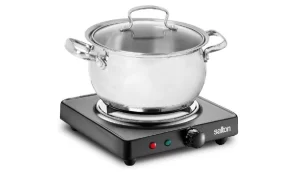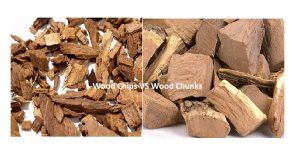Can You Season Cast Iron With Coconut Oil
Yes, coconut oil can be used to season cast iron pans, including skillets. Seasoning is the process of creating a natural, non-stick surface on the cast iron, which helps prevent food from sticking and enhances the flavor of your dishes.
Coconut oil is a popular choice for seasoning cast iron due to its high smoke point and natural lubricating properties. It forms a durable layer when heated, which helps protect the pan from rust and makes it easier to clean.
Plus, coconut oil adds a subtle hint of coconut flavor to your cooking, imparting a unique taste to your dishes.
To season a cast iron skillet with coconut oil, start by washing the pan with warm water and mild detergent, then dry it thoroughly. Next, apply a thin layer of coconut oil to the entire surface of the pan, including the handle. Make sure to use a paper towel or a cloth to spread the oil evenly and remove any excess.
Preheat your oven to a moderate temperature, around 350-400°F (175-200°C), and place the oiled cast iron pan upside down on the oven rack. This allows any excess oil to drip off and prevents pooling. Bake the pan for about an hour, then turn off the oven and let the pan cool completely inside.
Repeat this process several times to build up a good seasoning layer. Over time, the coconut oil will penetrate the porous surface of the cast iron, creating a natural non-stick coating that improves with each use.
Remember to avoid using abrasive cleaners or utensils that could damage the seasoning.
You Might Also Like: Is It Safe to Season a Cast Iron Skillet With Avocado Oil?
Seasoning Cast Iron Cookware and Coconut Oil
Seasoning cast iron cookware is of utmost importance to ensure its longevity, enhance its cooking performance, and create a natural non-stick surface. Cast iron pans, such as skillets and pots, have been cherished for generations due to their exceptional heat retention and even heat distribution. Proper seasoning not only prevents rust but also adds flavor to your dishes.
One popular option for seasoning cast iron is coconut oil. Coconut oil is not only a healthy cooking alternative but also possesses excellent properties for seasoning. Its high smoke point allows it to withstand high temperatures, making it suitable for the seasoning process.
Coconut oil also contains lauric acid, which has antimicrobial properties that help protect the cast iron surface. You can also use bacon grease for seasoning.
7 Steps To Season Cast Iron Cookware With Coconut Oil
Step 1: Clean the Cast Iron Cookware
Begin by cleaning the cast iron cookware with warm water and a mild detergent. This step is crucial to remove any dirt, food residue, or rust that may be present. Use a brush or sponge to gently scrub the surface, ensuring all areas are thoroughly cleaned. Rinse the cookware with water and dry it completely using a towel.
Step 2: Apply Coconut Oil to the Cookware
Using a clean cloth or paper towel, apply a thin layer of coconut oil to the entire surface of the cast iron cookware, including the handle. Make sure to coat all areas evenly, but avoid applying too much oil, as it may lead to a sticky residue. The coconut oil will act as a protective barrier and contribute to the development of a non-stick surface.
Step 3: Preheat the Oven
Preheat your oven to a moderate temperature, typically around 350-400°F (175-200°C). This ensures that the coconut oil will be evenly distributed and properly baked onto the cast iron surface during the seasoning process.
Step 4: Bake the Cookware Upside Down
Place the oiled cast iron cookware upside down on the middle rack of the preheated oven. This positioning allows any excess oil to drip off and prevents pooling, which could result in uneven seasoning. It also helps in the formation of a smooth and consistent seasoning layer.
Step 5: Bake the Cookware for an Hour
Let the cast iron cookware bake in the oven for approximately one hour. This duration allows the coconut oil to penetrate the porous surface of the cast iron, creating a durable seasoning layer. The heat from the oven helps in the polymerization of the oil, forming a natural non-stick coating.
Step 6: Cool and Repeat
After the baking time is complete, turn off the oven and allow the cookware to cool completely inside. This cooling process is essential to set the seasoning and ensure its effectiveness. Once cooled, you can repeat the seasoning process several times to build up a robust and well-seasoned surface.
Step 7: Maintenance and Care
To maintain the seasoning on your cast iron cookware, avoid using harsh cleaning agents or abrasive materials that can damage the seasoning layer. Instead, clean the cookware with mild detergent and warm water, using a brush or sponge. After cleaning, ensure thorough drying and apply a thin layer of coconut oil to preserve the seasoning and protect the cookware from rust.
Maintaining Your Seasoned Cast Iron Cookware
Once you have seasoned your cast iron cookware, it is crucial to maintain it properly to preserve its non-stick surface and prevent rust. By following a few simple steps, you can keep your seasoned cast iron in excellent condition for years to come.
After each use, clean your cast iron cookware with warm water and a brush or sponge. Avoid using abrasive cleaners or metal utensils that can damage the seasoning. If needed, use a small amount of mild detergent to remove stubborn residue. After washing, thoroughly dry the pan to prevent any moisture from causing rust.
To further protect the seasoned surface, apply a thin layer of oil after each use. This can be done by adding a small amount of oil to a paper towel and wiping the entire surface, including the handle. The oil acts as a barrier, preventing the pan from coming into direct contact with moisture and oxygen, which can cause rust.
If you notice any signs of rust on your seasoned cast iron, don’t panic. Simply scrub the affected area with a brush or sponge and warm water until the rust is removed. Afterward, dry the pan completely and reapply a thin layer of oil to restore the protective coating.
Read More: Deglaze a Cast Iron Pan: Easy Steps
FAQs
Why is seasoning cast iron important?
Seasoning creates a non-stick surface, enhances the flavor of food, and protects the cookware from rust. It also improves heat retention and distribution, making your cooking experience more enjoyable.
Can I use other oils for seasoning cast iron?
Yes, besides coconut oil, other oils like vegetable oil or flaxseed oil can be used for seasoning cast iron. Coconut oil is a popular choice due to its high smoke point and natural properties.
How often should I season my cast iron cookware?
It is recommended to season your cast iron cookware whenever it appears dull, or rusty, or when food starts sticking to the surface. Regular seasoning can help maintain the non-stick coating.
Can I season a cast iron skillet on the stovetop with coconut oil?
While stovetop seasoning is possible, oven seasoning is generally preferred as it allows for more even heat distribution. Oven seasoning also helps in forming a more durable seasoning layer.
Can I use coconut oil to re-season a cast iron pan?
Absolutely! If your cast iron pan needs re-seasoning, applying a fresh layer of coconut oil and following the seasoning process can revive its non-stick surface and a protective coating.





